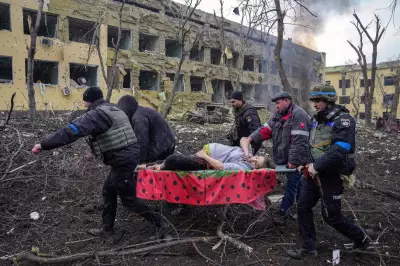
A growing educational crisis in Northern Ireland has forced dozens of children from Derry to seek schooling across the border in the Republic of Ireland, raising serious concerns about educational provision and cross-border cooperation.
The Scale of the Problem
Shockingly, approximately 70 post-primary students from the Derry area are currently receiving their education in County Donegal because there simply aren't enough places available in their local schools. This cross-border educational migration highlights a deepening crisis in Northern Ireland's education system.
Political Paralysis and Practical Consequences
The situation has been exacerbated by the ongoing political stalemate at Stormont, which has left education officials struggling to address the capacity issues effectively. Without a functioning executive, long-term planning and resource allocation for schools has become increasingly challenging.
"We have a perfect storm of factors creating this crisis," explained one education source. "Rising student populations, limited school capacity, and political instability have combined to force families to look across the border for solutions."
Impact on Families and Communities
The daily reality for affected families includes:
- Lengthy cross-border commutes for students
- Additional transportation costs and logistical challenges
- Concerns about curriculum differences between jurisdictions
- Potential impact on community cohesion and local school systems
A Warning Sign for Education Provision
This situation serves as a stark warning about the state of educational infrastructure in Northern Ireland. The fact that families are being compelled to seek educational solutions in another jurisdiction underscores the severity of the capacity issues facing schools in the Derry area and potentially beyond.
The cross-border school crisis represents more than just a logistical problem – it raises fundamental questions about educational rights, resource allocation, and the future of schooling in border regions.






